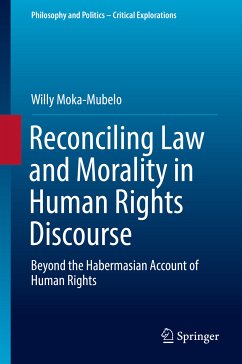Unlike the traditional or orthodox approach, which conceives human rights as rights that individuals have by virtue of their humanity, and the political or practical approach, which understands human rights as legal rights that are meant to limit the sovereignty of the state, the moral-legal approach reconciles law and morality in human rights discourse and underlines the importance of a legal framework that compensates for the deficiencies in the implementation of moral human rights. It not only challenges the exclusively negative approach to fundamental liberties but also emphasizes the necessity of an enforcement mechanism that helps those who are not morally motivated to refrain from violating the rights of others. Without the legal mechanism of enforcement, the understanding of human rights would be reduced to simply framing moral claims against injustices.
From the moral-legal approach, the protection of human rights is understood as a common and shared responsibility. Such a responsibility goes beyond the boundaries of nation-states and requires the establishment of a cosmopolitan human rights regime based on the conviction that all human beings are members of a community of fate and that they share common values which transcend the limits of their individual states. In a cosmopolitan human rights regime, people are protected as persons and not as citizens of a particular state.
Dieser Download kann aus rechtlichen Gründen nur mit Rechnungsadresse in A, B, BG, CY, CZ, D, DK, EW, E, FIN, F, GR, HR, H, IRL, I, LT, L, LR, M, NL, PL, P, R, S, SLO, SK ausgeliefert werden.









